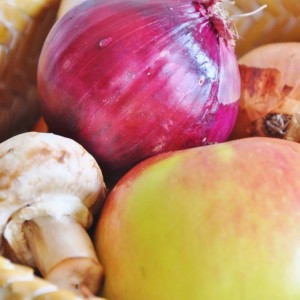Emergency preparedness is no joke. It only takes one look at the biggest headlines of recent years, and you will see natural disasters, cities in lockdown, and economic crises across the globe; all of which required people to either stay in their homes for days on end, go without a steady income for a period of time, or evacuate their homes at a moment’s notice. These are the sorts of emergency situations that can really threaten lifestyles at best and lives at worst. And as such, it is more important than ever that each one of us is prepared to face any similar situation that comes around.
But what do you do if you find yourself in a situation that prevents you from cooking using your normal methods? What if you are suffering a power outage, your stove is broken, or you have been forced to evacuate your home? Here are some essential tips for being prepared for these sorts of situations.
Store Ready-to-Eat Food
Emergency Preparedness 101: keep an emergency food supply in your house. This should include plenty of nonperishable items that can be made into meals or keep you going for a long period of time. However, one important aspect of this is to make sure that at least some of your emergency food is ready to eat. This means that it requires no preparation in terms of cooking, and no special appliances to put it together. It might not be your favorite food, but it could save your life some day. Look into canning for some different options.
Put Together an Emergency Survival Kit
If you do have to evacuate your home, you probably won’t have time to put together all of the essentials that you need to get by for awhile, or you may forget important things if you only have a short amount of time. If you put together a survival kit right now, you will be able to grab it when the time comes. In that survival kit, be sure to include a cooker that you can heat food and water over. A word of warning however, if you do have a portable stove, never use it indoors as you could put yourself at risk to the fatal effects of carbon monoxide poisoning.
Remember Clean Water
It is something that is all too often forgotten when it comes to setting aside an emergency supply, but water is the most important thing to remember. You do not know whether you will have access to clean water, or any water at all, so be sure to store enough in your emergency kit. There should be about a gallon of water per person for three days. Remember you will need it for drinking, cooking, washing, and cleaning, so ration it accordingly. If you are mobile cooking, remember to boil any water before consuming it.
Bring Enough for Everyone
Don’t forget to store enough for each member of your household. Take note of how much food and water you go through on a daily basis, and store a similar amount in your pantry. If you have pets, make sure that you keep food and water for them as well.
Add to it Regularly
Food storage is never complete. For one thing, there is not much food that will actually last forever, so you should be regularly checking your storage for bad or expired food and replacing it. Furthermore, there are always new and better options to fulfill your survival needs, and a regular look at your emergency storage will help you to identify them. Food storage might sound like something that will never be necessary for you, but there are many people around who will tell you that it is no joke.











